Daniel Craig: the interview
The British star talks Bond, Dragon Tattoo and publicity stunts
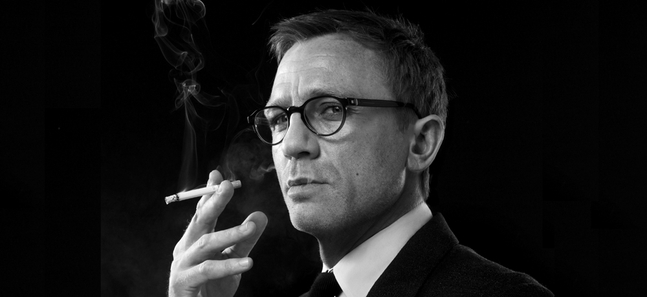
Posted: Mon Feb 06 2012
Part one | Part two
Daniel Craig is doing a terrific impression of a smiling buffoon. The actor is explaining how he’s rubbish at grinning on demand and is always branded ‘mean and moody’ whenever he’s snapped unexpectedly by a photographer. So now he’s giving me his best forced smile. It’s not pretty. ‘I’m just not that person,’ he laughs. ‘So people have a perception that I’m grumpy all the time.’
You could say that as James Bond he has a reputation to protect. The 43 year old is currently shooting his third Bond film, Skyfall, although when we meet in late September in a downtown Soho hotel in New York City – he lives in Manhattan with his new wife, Rachel Weisz – it’s a quieter time for him. He’s between finishing some pick-up shots for The Girl with the Dragon Tattoo in August in Los Angeles and flying to London to begin working on Skyfall with the British director Sam Mendes.
The Girl with the Dragon Tattoo is the reason we’ve met. Craig is dressed in his usual off-duty uniform of dark T-shirt and jeans, rounded out with some colourful Nikes and a chunky watch (a 007 sponsorship tie-in, perchance?). He has clearly been working out and tells me he’s down the gym every day to prepare for being Bond.
He’s full of praise for Dragon Tattoo director David Fincher (responsible for The Social Network), who has followed three recent Swedish films of Stieg Larsson’s Millennium books with his own, English-language version of the first novel. Craig is Mikael Blomkvist, the journalist on his uppers who hooks up with troubled computer hacker Lisbeth Salander (Rooney Mara, who played Mark Zuckerberg’s girlfriend at the beginning of The Social Network) to investigate a serial killer. The film was Craig’s last non-Bond duty before dusting off the tuxedo and leaping back into the world of 007 this autumn.
You’ve said before that talking to the press is like going to the dentist. Do you feel any differently now you’ve played a journalist?
‘Oh yeah, now I understand! [Laughs] I feel so much better about it! The truth is, I don’t have any problem with journalists – I count some of them as friends – also some of my heroes are journalists, I’m a big fan of Robert Fisk – great people or crazy people who are prepared to stand up for what’s right.
‘And I like the guy in this film, Mikael Blomkvist, but what I like about him is that he’s flawed, he’s a complex, weak, egotistical man on a moral crusade. And all those things combined are interesting, plus he has this brilliant relationship with this girl, Lisbeth Salander, this damaged, hyper-intelligent human being. On paper, they shouldn’t come together, but they do and they respond to each other. She’s the one with the balls in the relationship. He’s happy to watch while she beats someone up.’
Rooney Mara looks terrifying as Salander.
‘There were shenanigans going on while she was being cast [about whether she was right: Natalie Portman, Carey Mulligan and Scarlett Johansson were all linked to the role]. David Fincher was adamant and I get that. Just look at the beginning of The Social Network, she’s phenomenal. She’s got something about her, but also she’s physically perfect. When she puts the hoodie on and the leather jacket, she looks like a 14-year-old boy, she looks sexless. Which is perfect. The other side of it is that when she doesn’t have that on, she’s really sexy.
‘That combination is absolutely true to the book. Salander’s someone who would walk down the street and you wouldn’t notice. That’s how she wants it, that’s how she’s survived in her life. She’s switched herself off from humanity and she walks in the shadows.’
Your character is Swedish, it’s set in Sweden, but you speak English with no accent. Was there a debate behind that?
‘Some people in the film have accents and some don’t. I don’t. I had a long conversation with David about it and said that a lot of Scandinavians speak English perfectly. I’m one of those guys. We’ve got Danish people, Swedish people, English people, American people. The only thing that matters, as far as I’m concerned, is that no one sounds American. We sound as European as possible. We’re all speaking one common language and that happens to be English. I didn’t want an accent to get in the way, and for me it would. Salander has no formal education and she has a street accent, it’s quite specific.
‘They shot all of Wallander, the Kenneth Branagh thing, in Sweden and it works brilliantly. You need that Swedish train in the background or the Volvo – of which there are many! Count them: Volvo, Volvo, Volvo… Saab!’
Were you into the books before?
‘I had read them already. I stole a paperback off someone on holiday. Then I read the other two. You’d be at the airport and see the cross-section of people who were reading them, that’s how I noticed them. I kept seeing it on the bestsellers list and had no idea what it was about, and then you’d find 80-year-old men and 14-year-old girls reading it. That’s phenomenal.’
You can’t have needed much encouragement to work with David Fincher after The Social Network.
‘I think that film was a real shift for him in the way he makes movies. I think his visual style was all there, but it was embedded in the movie in a way I hadn’t seen before. I love all his movies, but Fight Club dated because the visual style was copied in commercials and if you’re that cutting edge you’re always going to be up against that. You’re creating new things in movies and people are going to steal them. With The Social Network, I felt there was a maturing of him, he’s always been a great filmmaker but he suddenly became confident about storytelling and visual stuff and the two married together in a way I hadn’t seen him do with such confidence.’
You’re about to start shooting the new Bond film. How do you feel about it? Is there a sense of ‘Hell, here we go for the next seven months…’ just because it’s such a massive undertaking?
‘Yes, there’s definitely some of that, but I’m genuinely really excited because we’ve got a script. The deciding factor for doing Casino Royale, even though I was umming and aahhing, going [puts on moody voice] “I don’t know if I want to do it”, was that they showed me the script and I thought: Fuck, I’ve got to do this. And I think this one is better. I really do. It’s a totally original story. I read it and it just works as a story. It sounds like a simplistic thing to say, but you read it and you go: “Oh yeah, I get that, yeah, and oh, yes, yes, okay,” and that’s unusual.’
It seems that the script is sometimes an after-thought on huge productions.
‘Yes and you swear that you’ll never get involved with shit like that, and it happens. On Quantum, we were fucked. We had the bare bones of a script and then there was a writers’ strike and there was nothing we could do. We couldn’t employ a writer to finish it. I say to myself, “Never again”, but who knows? There was me trying to rewrite scenes – and a writer I am not.’
You had to rewrite scenes yourself?
‘Me and the director [Marc Forster] were the ones allowed to do it. The rules were that you couldn’t employ anyone as a writer, but the actor and director could work on scenes together. We were stuffed. We got away with it, but only just. It was never meant to be as much of a sequel as it was, but it ended up being a sequel, starting where the last one finished.’
It was still a massive commercial success though. So it wasn’t a failure in that sense.
‘No, quite. Thank God it worked, and it worked like gangbusters. But for me personally, on a level of feeling satisfied, I would want to do better next time. That’s really important to me.’
To give a better performance?
‘No, the whole film. If you’re going to do that sort of stuff, you’ve just got to get it right. You’ve got to give it your best shot. When you’ve got all that talent, everyone gunning to make it good, you’ve got to get it… For fuck’s sake, it’s a Bond movie. You want people to go, “Whooah!” – a sharp intake of breath during a movie is never a bad thing.’
Continue reading Daniel Craig: the interview
Part one | Part two
Tweets
- About Us |
- Work for Time Out |
- Send us info |
- Advertising |
- Mobile edition |
- Terms & Conditions |
- Privacy policy |
- Contact Us
Copyright © 2014 Time Out Tokyo










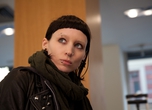
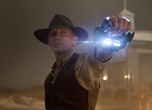
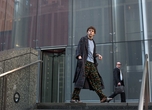
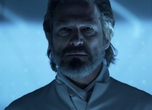
Add your comment